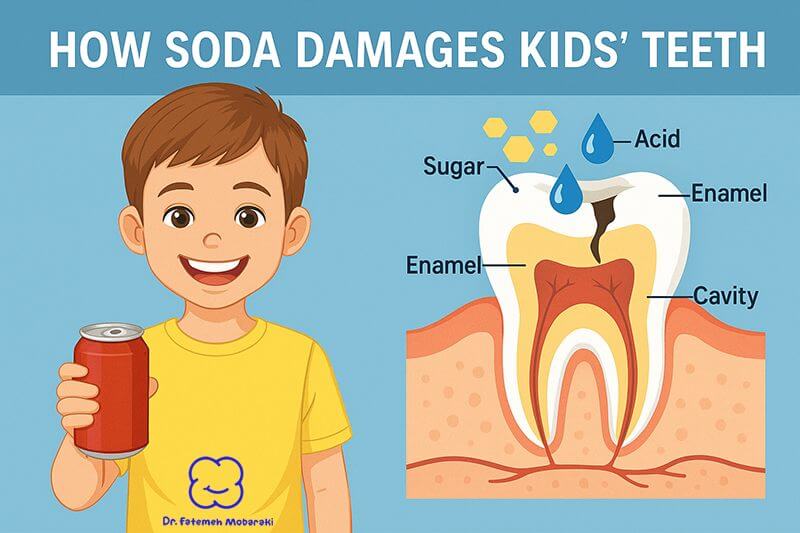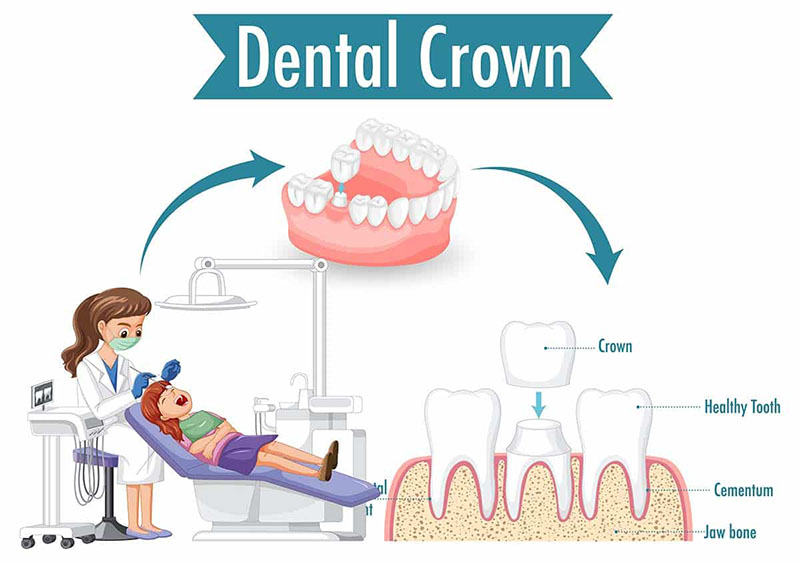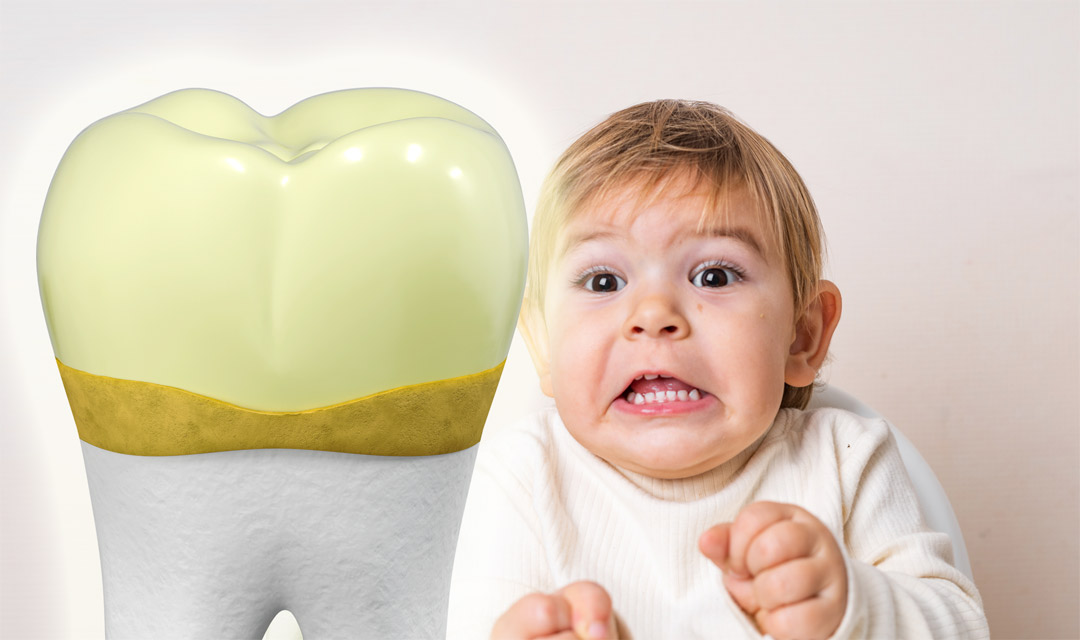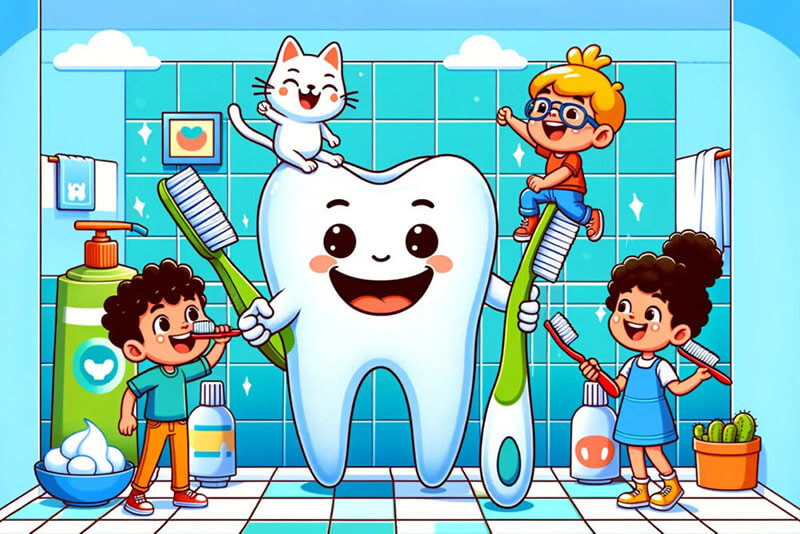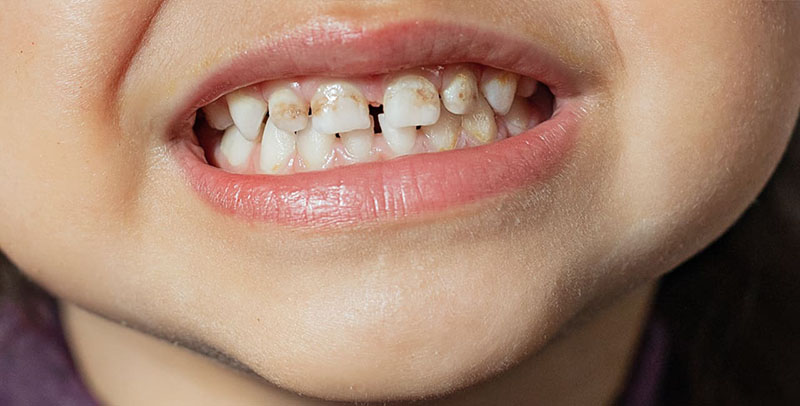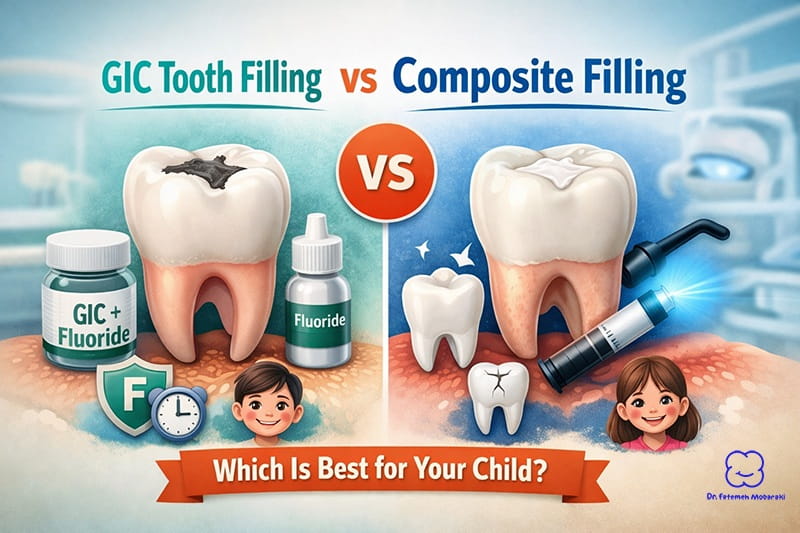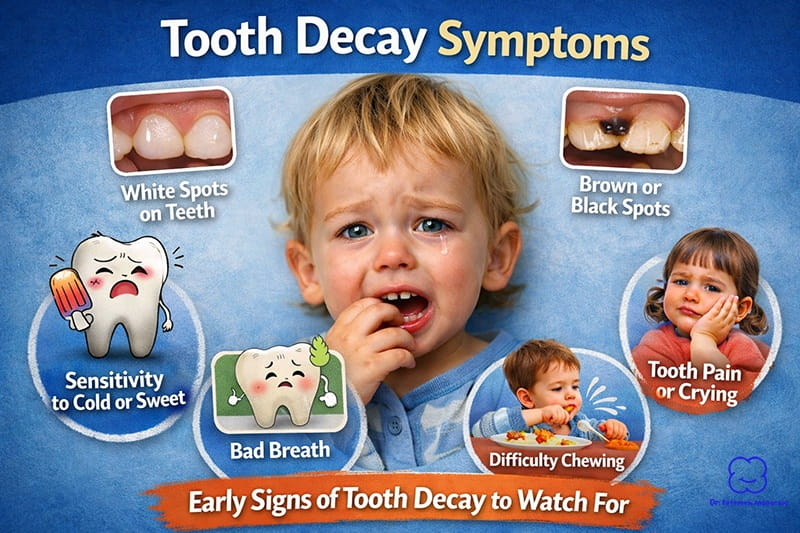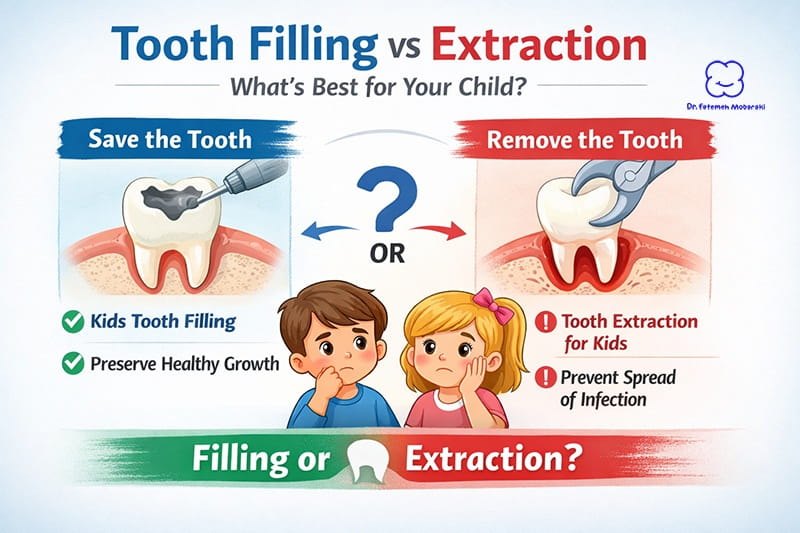Every parent dreams of their child growing up with a beautiful, healthy smile. Yet, hidden behind enticing advertisements and bright packaging, there is an often-overlooked danger quietly impacting your child’s dental health: soda. These fizzy drinks might appear fun and harmless, but their hidden dangers are substantial and alarming. Understanding the effect of soda on kids teeth can significantly help parents protect their child’s dental health.
The Effect of Soda on Kids Teeth: Sugar Isn’t the Only Culprit
It’s a common misconception to think sugar alone makes soda harmful. While sugar undeniably poses a substantial risk—a typical 12-ounce can has about 10 teaspoons of sugar—it’s not the entire problem. Soda also contains high levels of acids that magnify sugar’s destructive effects on tooth enamel, causing extensive dental damage.
o learn more about how sugar alone affects your child’s teeth, check out our blog post on The Effects of Sugar on Children’s Teeth.
Why Enamel Matters for Children’s Teeth
Enamel is the hardest substance in the human body, serving as the protective shield around teeth. Children’s enamel, however, is thinner and still developing, making it far more susceptible to erosion caused by sugary and acidic beverages. Protecting enamel from early childhood is vital, as its erosion is irreversible and can lead to severe dental problems throughout life. For personalized advice and preventive care tailored to your child’s needs, consider visiting a pediatric dentist in Jumeirah who specializes in protecting young smiles from early enamel erosion. Soda and kids teeth are a concerning combination precisely because of this vulnerability.
How Soda Damages Kids’ Teeth Over Time
When a child drinks soda, sugar immediately interacts with the mouth’s bacteria, creating acids that aggressively attack tooth enamel. This acidic assault can last up to 20 minutes after each sip, meaning repeated consumption throughout the day dramatically accelerates enamel erosion.
Beyond sugar, soda also contains acids like:
- Carbonic acid: responsible for carbonation and bubbles.
- Phosphoric acid: enhances flavor and shelf life.
- Citric acid: adds tartness to citrus-flavored beverages.
These acids significantly weaken tooth enamel, leading to sensitivity, cavities, and ultimately severe dental decay. Over time, the continuous exposure can degrade enamel entirely, exposing the sensitive inner layers of the tooth, causing pain and severe damage.
Why Kids’ Teeth Are at Greater Risk from Soda
Children’s teeth are particularly vulnerable because their enamel is still forming and is not yet fully hardened. This makes their teeth significantly more prone to cavities and severe erosion from even modest soda consumption. Additionally, sodas, especially darker varieties like colas, frequently cause staining, negatively impacting a child’s self-confidence and willingness to smile openly. This highlights how serious the effect of soda on kids teeth really is.
Soda and Kids Teeth: A Global Concern
The increased consumption of sugary and carbonated drinks among children worldwide has become a growing public health concern. Marketers often target children with colorful packaging and sweet flavors, making soda a daily habit for many. This increase is not limited to traditional sodas—energy drinks and flavored sparkling beverages are also rising in popularity. Despite being perceived as trendier alternatives, energy drinks often contain just as much sugar and acid, if not more.
The Saudi Arabian study serves as a crucial case example of why such research is needed. Conducted due to the alarming rise in soda and energy drink consumption among youth, the study aimed to investigate how informed children are about the effects of these drinks. It confirmed what many pediatric dentists already see in their clinics: soda consumption is deeply ingrained, and awareness is shockingly low.
Perhaps even more concerning is that many children in the study consumed energy drinks multiple times a day. These drinks typically include high caffeine content, excessive sugar, and even more acidic formulations than regular soda—leading to a faster rate of enamel erosion and potential behavioral and developmental implications.
Moreover, parents often think that switching to diet sodas is a healthier choice. Unfortunately, even diet sodas—despite being sugar-free—remain highly acidic due to ingredients like citric and phosphoric acid. Their effect on enamel erosion is still significant, meaning they pose similar dental risks to regular soda.
The study’s rationale was built around these patterns, aiming to shed light on behavioral habits and knowledge gaps so that better preventive strategies could be developed at home, in schools, and within healthcare systems.
Dentists and researchers alike now emphasize the importance of addressing not just sugar intake, but also the acidic nature of beverages as a critical factor in tooth damage. This multi-faceted threat reinforces the urgency of public education and early intervention.
Lastly, it’s important to acknowledge that soda doesn’t just lead to cavities. It can contribute to a broader set of dental abnormalities, including weakened enamel structure, early tooth loss, and changes in bite alignment due to decay-driven tooth damage. Pediatric dentists often see these cumulative issues in children who consume sugary or acidic beverages daily.
These insights only highlight further how deeply connected the effect of soda on kids teeth is to overall pediatric health—and why a holistic approach is not just recommended but necessary. Addressing soda’s impact means considering education, behavior, health systems, marketing regulations, and parental guidance together.
Studies worldwide reveal troubling patterns in soda consumption among children. For example, a recent survey conducted in Saudi Arabia found:
- Approximately half of the children drank soda weekly.
- Nearly 13% consumed soda daily.
- Over half lacked basic awareness of soda’s harmful dental effects.
- Few children practiced oral hygiene immediately after drinking soda.
This worrying trend is echoed globally, illustrating a universal gap in children’s dental health awareness.
Why Dubai’s Kids Are at Risk
Dubai is a city where modern lifestyles, global food choices, and heavy marketing can make sugary drinks easily accessible to children. Many kids here regularly consume soda and flavored beverages, especially during school breaks, birthday parties, and outings to malls and restaurants. Unfortunately, this trend contributes to a growing number of early childhood cavities and enamel erosion cases seen in local dental clinics.
Parents in Dubai often face challenges in managing their children’s sugar intake due to social norms and the wide availability of soda in schools and supermarkets. Combined with warm weather that increases thirst, it’s easy for children to reach for fizzy drinks instead of water.
As a pediatric dentist in Dubai, I frequently see young patients with soda-related enamel damage and cavities—most of which could have been prevented with early education, dietary changes, and regular check-ups.
If you live in Dubai and are concerned about your child’s dental health, our Pediatric Dental Clinic in Dubai is here to help. We offer gentle, preventative-focused dental care tailored specifically for children in the UAE.
Other Health Risks of Soda for Kids
Beyond dental erosion, regular soda consumption increases risks for obesity, diabetes, heart disease, and a weakened immune system. These issues become more concerning in growing children, whose bodies and immune systems are still developing. The link between soda and kids teeth is just one part of a much bigger health picture.
How to Spot Soda Damage in Your Child’s Teeth
Parents should vigilantly monitor their child’s teeth for early signs of soda-induced damage, including sensitivity to temperature changes, visible enamel erosion, teeth discoloration, and recurring cavities. Recognizing these symptoms promptly can prevent extensive, long-term dental issues.
How the Effect of Soda on Kids Teeth Impacts Mental Well-being
The effect of soda on kids teeth goes beyond physical health. Children with visibly damaged or stained teeth often experience low self-esteem and anxiety, potentially hindering their social interactions and overall confidence. Early intervention can significantly improve psychological and emotional well-being.
Practical Steps for Protecting Your Child’s Teeth
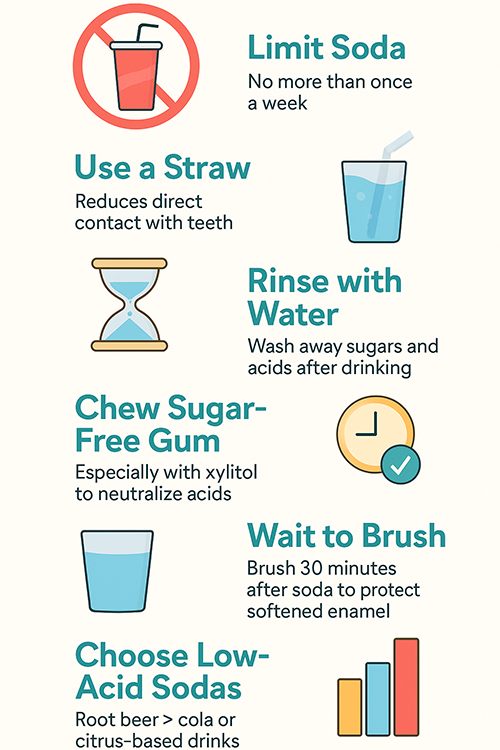
Avoiding soda altogether is ideal but might not always be practical. Here are simple and effective strategies parents can adopt to minimize harm:
- Limit Consumption: Restrict soda to special occasions, ideally no more than once a week.
- Use a Straw: Reducing direct contact with teeth significantly lessens damage.
- Avoid Prolonged Sipping: Encourage quick drinking rather than sipping to minimize prolonged acid exposure.
- Rinse After Drinking: Immediately rinsing with water helps neutralize harmful acids.
- Chew Sugar-Free Gum: Gum containing Xylitol boosts saliva production, which naturally combats acids.
- Delay Brushing: Wait 30 minutes after soda consumption before brushing to avoid harming softened enamel.
- Choose Less Acidic Sodas: Opt for beverages like root beer or cream soda rather than highly acidic colas or citrus-flavored sodas.
- Prioritize Oral Hygiene: Regular brushing, flossing, and dental check-ups significantly reduce soda-related dental damage.
Best Foods to Protect Kids’ Teeth from Soda
A nutritious diet rich in calcium, vitamin D, and phosphorus strengthens enamel and helps mitigate soda’s harmful effects. Incorporating dairy, nuts, leafy greens, and fortified cereals can significantly boost your child’s dental resilience.
Talking to Your Child About Soda and Their Teeth
Clear and open communication is vital to help children understand the risks associated with soda. Use age-appropriate explanations, highlighting practical benefits like enjoying favorite foods comfortably and having a bright, attractive smile.
Building Healthy Oral Hygiene Habits
Establishing good oral hygiene routines early on is crucial. Consistent routines, reinforced by rewards, encourage children to take ownership of their dental health, setting the stage for lifelong healthy habits.
How Your Pediatric Dentist Can Help Prevent Soda Damage
Regular dental visits play a critical role in preventive care. Pediatric dentists can offer tailored advice, fluoride treatments, and protective sealants to enhance dental protection, detect early damage, and maintain overall oral health.
Creating a Soda-Free or Soda-Reduced Environment
Parents can foster environments at home and school that minimize soda availability. Encouraging healthier beverage alternatives like water, milk, or natural fruit juices diluted with water can significantly reduce soda intake and improve overall health outcomes.
Community and School-Based Initiatives
Collaborative efforts at community and school levels can substantially impact children’s attitudes towards soda. Educational programs, school policies limiting soda availability, and community-driven awareness campaigns can collectively reduce soda consumption among children.
United for Healthy Smiles: A Collective Call to Reduce Soda’s Harm on Kids
Protecting children’s dental health from the damaging effects of soda requires a community-wide effort involving parents, educators, healthcare providers, and policymakers. Together, these groups can drive meaningful change and significantly improve children’s health outcomes.
Understanding the true effect of soda on kids teeth is the first critical step towards better dental and overall health. By proactively managing soda intake, promoting good oral hygiene, and fostering supportive environments, parents can ensure their children develop healthy, beautiful smiles for a lifetime.
Common Questions Parents Ask About Soda and Kids Teeth
1. Is it okay for my child to drink soda occasionally?
Yes, occasional soda—such as once a week or during special occasions—is unlikely to cause significant harm if followed by good oral hygiene. However, daily or frequent consumption greatly increases the risk of enamel erosion and cavities.
2. Are diet sodas safer for my child’s teeth than regular sodas?
Not really. Even though diet sodas contain no sugar, they are still highly acidic. Acids like citric and phosphoric acid can erode enamel just as aggressively as sugary drinks.
3. What’s the best drink alternative to soda for kids?
Plain water is the best option. It hydrates without harming teeth. Milk and diluted natural juices (in moderation) are also better alternatives compared to sugary or acidic beverages.

